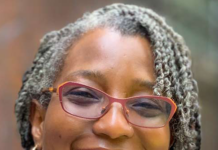 A new study by researchers at the University of Rhode Island and the University of Illinois finds that protecting open space from development increases the value of surrounding homes. Conservation efforts produce amenities that are attractive to homeowners. Conserved land provides peace and quiet, beautiful views, and recreation opportunities that are guaranteed for the foreseeable future. The value of those amenities is reflected in higher property values for people living in the vicinity. But a disproportionate amount of that newly generated wealth goes to high-income White households.
A new study by researchers at the University of Rhode Island and the University of Illinois finds that protecting open space from development increases the value of surrounding homes. Conservation efforts produce amenities that are attractive to homeowners. Conserved land provides peace and quiet, beautiful views, and recreation opportunities that are guaranteed for the foreseeable future. The value of those amenities is reflected in higher property values for people living in the vicinity. But a disproportionate amount of that newly generated wealth goes to high-income White households.
The U.S. Forest Service estimates that about 6,000 acres of open space in the U.S. are cleared for development each day. But across the nation, organizations like municipal land trusts are working to set aside land, protecting it from future development in perpetuity. Over the past 35 years, over $80 billion in conservation funding have been approved by municipal referenda across the U.S., the researchers say.
But these new “open spaces” serve to increase the racial wealth gap. In Massachusetts, for example, White households in the top wealth quartile received 43 percent of the roughly $63 million in housing wealth generated by new conservation from 1998 to 2016. Of all households that benefited from increased real estate value, 91 percent were White.
The trends found in Massachusetts hold generally over the rest of the U.S., the study showed. The study found that of the $9.8 billion in property wealth generated by conservation from 2001 to 2009 nationwide, 89 percent went to White households.
“Economists have done a lot to document disparities in exposure to pollution, but we know much less about equity in the distribution of the benefits from investments in valuable nature conservation,” said Amy Ando, a study co-author who is a professor of environmental and natural resource economics at the University of Illinois. “These findings make clear there can be large environmental justice issues in who gains from the environmental goods we provide and protect, and may serve as a call for more research identifying other such inequities.”
Co-author Corey Lang, a professor of environmental and natural resource economics at the University of Rhode Island noted: “That’s not to say that conservation is bad, or that we shouldn’t do it. Our primary purpose with this study was to document these disparities, and hopefully spark some debate about it.”
The full study, “Distribution of Capitalized Benefits From Land Conservation,” was published on the website of the Proceedings of the National Academy of Sciences. It may be accessed here.












